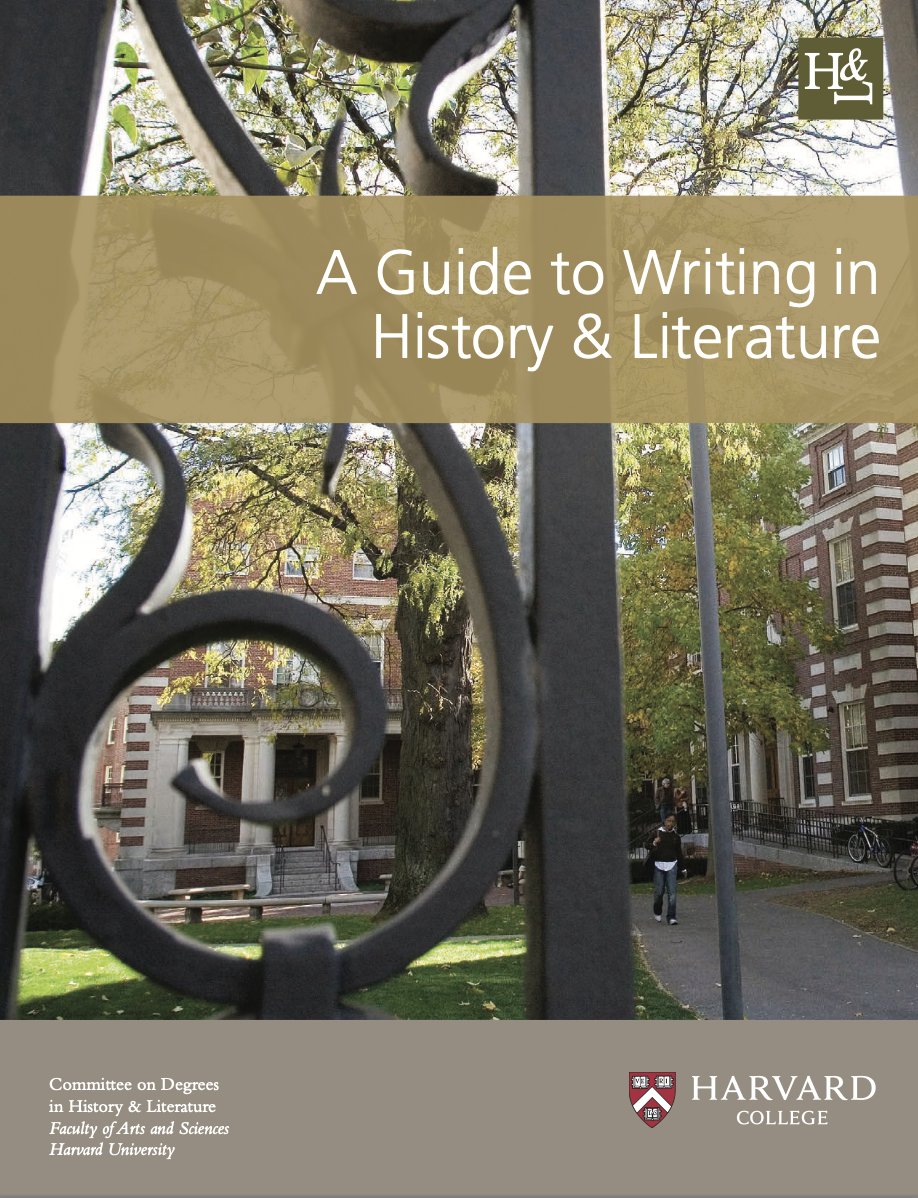All candidates for honors in History & Literature prepare a senior thesis of between 10,000 and 20,000 words focused on a topic of interest to the student. The senior thesis is a work of scholarship that makes an argument through analysis of relevant primary and secondary sources.
The thesis in History and Literature may be primarily a work of historical research or primarily a work of criticism, but all History & Literature theses should draw on the interdisciplinary training students have received in tutorials. The more historical thesis should always be attentive to the textuality (e.g., representational and rhetorical strategies, structure, genre, language, etc.) of historical documents, and the more literary theses should be attentive to the historical contexts and situations of literary texts. Students may wish to build upon earlier concerns and work done in courses and tutorials, including the Junior Essay, or they may wish to embark on a new research project.
Students work closely with a senior thesis adviser during every stage of the process, while also receiving the support of the entire History & Literature community of students and instructors. At the end of the junior year, students submit tentative plans for the senior thesis that are used to assign tutors for the senior year. Working under the guidance of their tutor, in late September, seniors submit senior thesis proposals to the Tutorial Board for feedback and approval. In mid-November, seniors submit a draft chapter between 4,000 and 5,000 words (not including notes and bibliography) that is read by classmates and other tutors in peer writing workshops. Check the calendar on the HL99 Canvas page for the specific deadlines.
The completed thesis is due on March 1; in cases when March 1 falls on a weekend, the thesis will be due either the preceding Friday or following Monday.
The thesis due date is firm. There are no exceptions without a dean’s permission. Students submitting theses after the deadline will receive credit for HL99, but the thesis will not be sent out to readers for evaluation, and therefore the student will not be eligible for concentration honors.
History & Literature students are encouraged to think creatively as they research and write their senior theses. Occasionally, students may wish to include primary source material they have produced themselves, such as an oral history, photography, or a documentary film. Students wishing to include such primary source material should discuss the possibility with their tutors, include a description of the primary source material and the conditions of its production in the senior thesis proposal, and, somewhere within the thesis, include a justification for its inclusion. Genres conventionally grouped under the rubric of “creative” writing—novels, plays, poetry—do not meet the requirements for the senior thesis in History & Literature unless the student is pursuing a Joint Concentration in a field that provides artistic training.
The thesis is graded by at least two outside readers who are members of the Committee on Degrees or Tutorial Board. If a reader determines that a thesis represents honors-level work, they will assign one of the following Latin grades: cum laude minus, cum laude, cum laude plus, magna cum laude minus, magna cum laude, magna cum laude plus, summa cum laude minus, summa cum laude. In the event that a reader decides that a thesis does not merit an honors designation, they may assign it a grade of no honors. In general, senior theses will be sent out for third readings when the student is a joint concentrator; when there is more than a full grade level between thesis readings; when a student is summa-eligible and both of the first two readings are magna plus; or when one reading is no honors.
History & Literature sends to the University Archives all theses that receive at least two grades of (or above) magna minus or one grade of (or above) magna plus. Archived theses are catalogued in HOLLIS and can be read in the Archives' reading room in Pusey Library.

